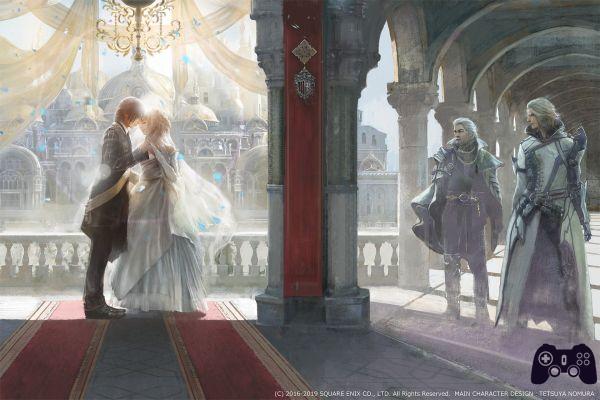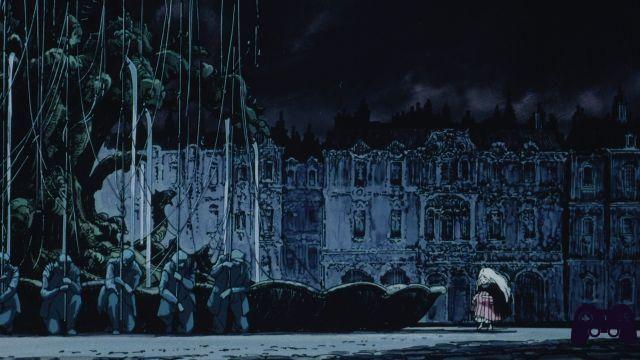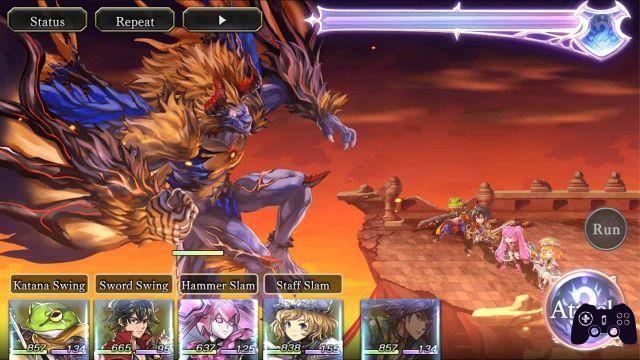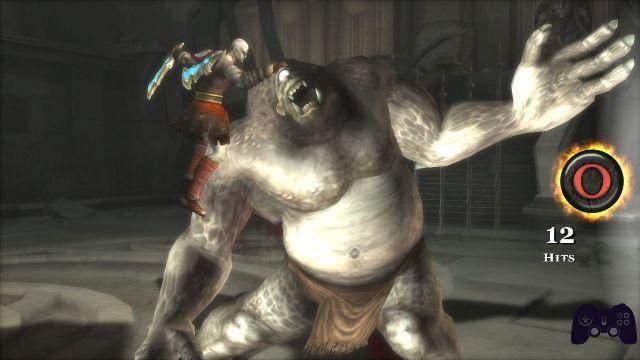
That is how one of the most well-known and controversial game design tricks can become a merit or a defect.
Ah, bullfighting. Ah, the Quick Time Events (from now QTE, which is done earlier). A long-standing, thorny, tedious, often cross and rarely delighted issue of almost every video game launched on the market for ten years to date. The pretext to use God of War in the title it is linked both to our current Cover Story but, above all, to bring the Santa Monica saga as an example of a well-researched implementation of indisputably boring mechanics in theory and often in practice.
Kratos cleared the QTEs
Needless to deny it, Kratos and his thirst for blood and violence have definitively cleared this game design dribble since the first release, capable of jumping the limits of programming certain sequences, impossible to achieve otherwise, and create numerical superiority, seeing the cut scenes grow dramatically and making them interactive at the same time. These contextual (and consensual, since we all came to terms in the end) made their first appearance in interactive 80s laserdisc films, such as the hugely popular Dragon's Lair, to then be perfected and embroidered inside the playful fabric by the tailor (and saint) Yu Suzuki, in the futuristic and very current Shanmue, operates years in advance on the roadmap of the medium, capable of laying the foundations and predicting what is our present, QTE included. It would have been nice to create an interactive article, but you have to settle for the archaic practice of scrolling to continue reading, which will be a bit historical, certainly of opinion and full of anecdotes of someone who has a stormy relationship with this mechanism.
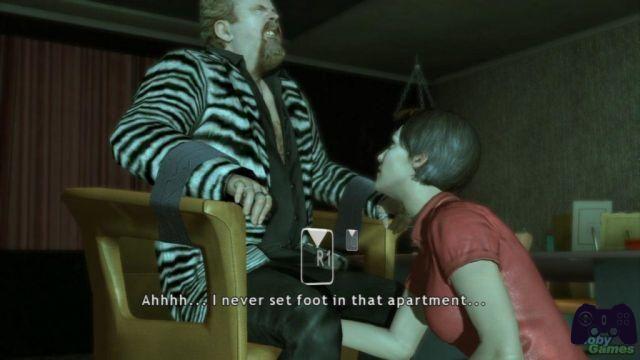
Perfection. QTE metaphor as a virtual testicle squeeze.
The chimera of interactive cinema brought down with a QTE
From Shenmue to David CageThis was precisely one of the intentions of the creator of OutRun, make Shenmue a work that mixed and did not shake the best the videogame world had to offer with the seventh art, a paradise where the gameplay could be interspersed and told through films with illuminated direction, however made interactive so as not to forget the foundations of interactivity, with the ultimate goal of increasing involvement The choice to insert QTEs in the Shenmue structure was precisely fruit of this philosophy, not so much of technological limitations, and everything was designed to make the cinematic cut of the product even more exciting. Since then, more and more productions have pursued cinematographic techniques, with an increasingly obsessive search for the balance between storytelling and playability, balance deliberately violated by David Cage, which over the years has shaped its interactive thrillers around the concept of contextual action, drawing inspiration almost from the progenitor Dragon's Lair and expanding the formula dramatically, first in the experimental Fahrenheit that destroyed more than a few backbones of the Dualshock 2 and made people laugh out of control in certain moments of action, and then in Heavy Rain, in which more than acting is required to react, in a very short time and strictly by pressing the button corresponding to the action we want to perform, to the sentence we want to pronounce or the path we want to take . An inevitable subtraction of fun to make the designer's wishes come true who dreamed of being a director, and a formula that we will see developed to the nth degree in the upcoming Detroit: Become Human.
As much as they are ambition and innovative liaison between cinema and video game, the works of David Cage are supported by a skeleton of Quick Time Event, capable of drying up the involvement and the general atmosphere.
If I was only able to read up on Shenmue, given that at the time I was on the PlayStation side of the "ship" (and in this the news announcing the remastering was particularly happy), I played Heavy Rain and also appreciated it as an unprecedented experience and innovative, while not finding myself absolutely in Cage's play philosophy. Its gameplay, from my point of view, creates a great sensory detachment between the emotionality of settings, situations, dialogues, and the very little taste for action, which should also be an integral part of the experience, given the adrenaline of many situations that it is impossible to enclose in a sequence of impromptu and often unnatural cold key presses, however sophisticated and varied the uses may be. Following this line of thought, I found myself much more involved, on a purely playful level (emotionally let's not even talk about it, I still have goosebumps to this day) with The Walking Dead of Telltale, a true meeting point between serial and graphic adventure, with gameplay still largely based on QTE and decisions to be made in a few seconds but with a decidedly less slave rhythm than cinema and an accentuated physicality of the same actions (whose number is decidedly more contained than the Quantic Dreams works), which require a good eye, coordination and even thought, returning a round feedback, in line with what happens on the screen within the limits of the possibilities offered by the backbone of the game.
The QTE as a metaphor for the shortcut ...
… Or the beauty of unscrewing Medusa's head in God of War, twisting her neck with the analog. Let's go back to the field of QTE as a complement, and not as a backbone or means to walk the path of innovation, talking about the game of the month, or rather, its spartan past. I have already taken insults for my post on the Holygamerz Facebook page for saying that, yes, the Santa Monica saga is a very good product but that it was, in my opinion, overly sanctified between the second and third acts of the PlayStation epic by critics and audiences. In the meantime my metascore has subsided considerably and I am loving and devouring the new chapter, which has everything that was missing in the previous ones, and perhaps Cory Barlog he shared a bit my same thought in the light of the current gen, go find out. The fact is that the implementation of QTEs in the saga is perhaps the best example of how to do it, if they really must be done, contextualizing them as the gods command in a 100% playful skeleton, with the aim of emphasizing the most gore and tiring scenes, stamping the keys as violently as Kratos stamps the head of a Greek god on the bare earth. The example with which I began the paragraph is not put there by chance, twisting the heads of jellyfish is a perverse pleasure accentuated by the movements required and the animation of the protagonist, returning a pleasant feeling of stress and anger. Mechanics that have contributed to making the boss fights as well as the finishing moves in general a cult. Just as Naughty Dog has always used the ploy for directorial purposes, as Yu Suzuki teaches, but also in terms of gameplay, just think of the grenades to be returned to the sender by pressing triangle at the right time, without detaching from the action and manually choosing whether to do it or less.
The secret lies in the contextualization of the same. When they are expertly sewn to the fabric of the game, they can also become an unnecessary pleasure. God of War teaches.
What is most disturbing about QTEs is their often forced nature, mandatory, involuntarily capable of breaking the flow of playability in two, sometimes even breaking the game itself, when inserted by betrayal and without giving the player the opportunity to react. Sometimes not only are they superfluous sections, but they raise the question of whether their insertion is a mere shortcut to avoid wasting blood and additional money on creating content that would benefit gameplay, wasting at the same time the opportunity to create a much more incisive release-tension film. There are very few titles capable of interspersing the pace with biting QTEs. Among these there is certainly the epic, incredible and extremely choreographic The Wonderful 101, where the nature of the handful of heroes allowed Kamiya-san to slow down time in the middle of the climax to have us manually mold the required union morph, a door to be broken in to ascend to the next and even more excessive scene, higher and higher up to the Nirvana of total exaltation, the culmination of photonic and very tight fights. Mechanics that find a sense of existing in the emphasis they transmit, thus integrated into the rules of the game, using the same principles without creating an annoying detachment between the sections. We live in a world where entire boss fights, even the final ones (just think of The Shadow of Mordor who allows himself the luxury of wasting Sauron, the undisputed king of all the villains of entertainment and literature in this way), are played on thread of the Quick Time Event, draining emotions and instilling lack of creativity and from time to time, at least, healthy hilarity as in the video you find a little further on. In short, a double-edged sword from whose use comes great responsibility, whose best implementation will remain that of Swert65 in Deadly Premonition. Press X to read your future in a great cup of steaming black coffee, as Dale Cooper, a colleague of the equally unforgettable Francis York Morgan, would say.
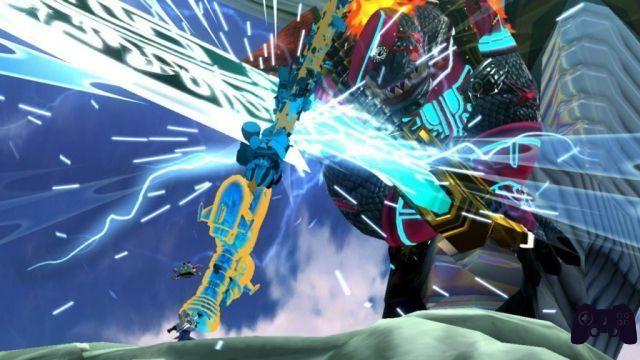
The full taste of epicness.
If my grandfather had had QTEs ...
And while I realize how many times I have written the anagram "QTE" and how boring it is light, I really think that pressing keys at random has also tired me a little. I want to hear the video game, not solve it with a swipe of the sponge. I hate automatisms and I want every single segment of a game to be a little effort in which to transfer energy via pads to my alter ego like a Tesla coil. The emotion is, to stay on the subject, the one that God Of War is giving me and its full manual combat system where you can decide to activate a QTE at discretion once stunned, with kicks and punches, an enemy, stuff not invading , extremely tasty and perfectly integrated. The future is a return to manual skills, now that technology allows it, no longer relying on ploys and automatic pilots, even unsightly, which take control of our thoughts and our fingers, depriving us, even for a few moments, of the visceral pleasure of the game.




